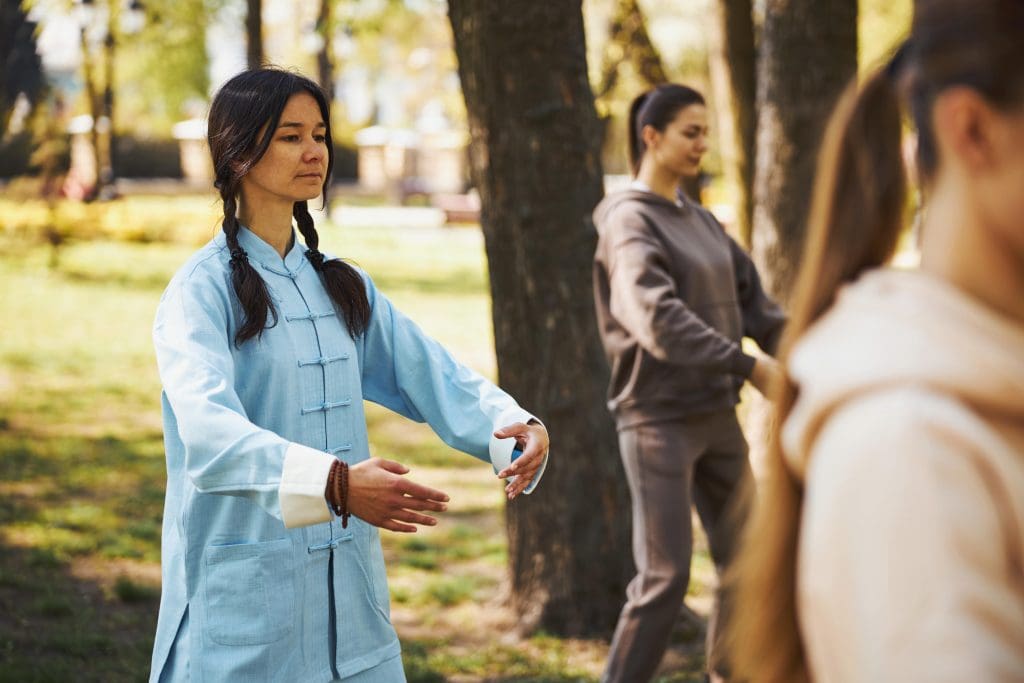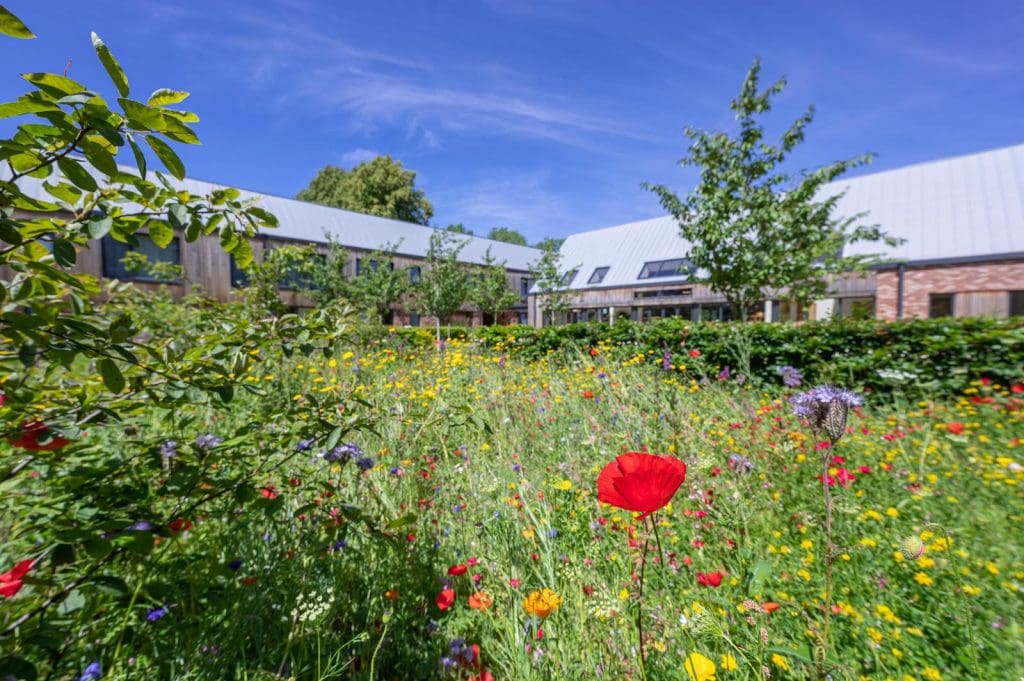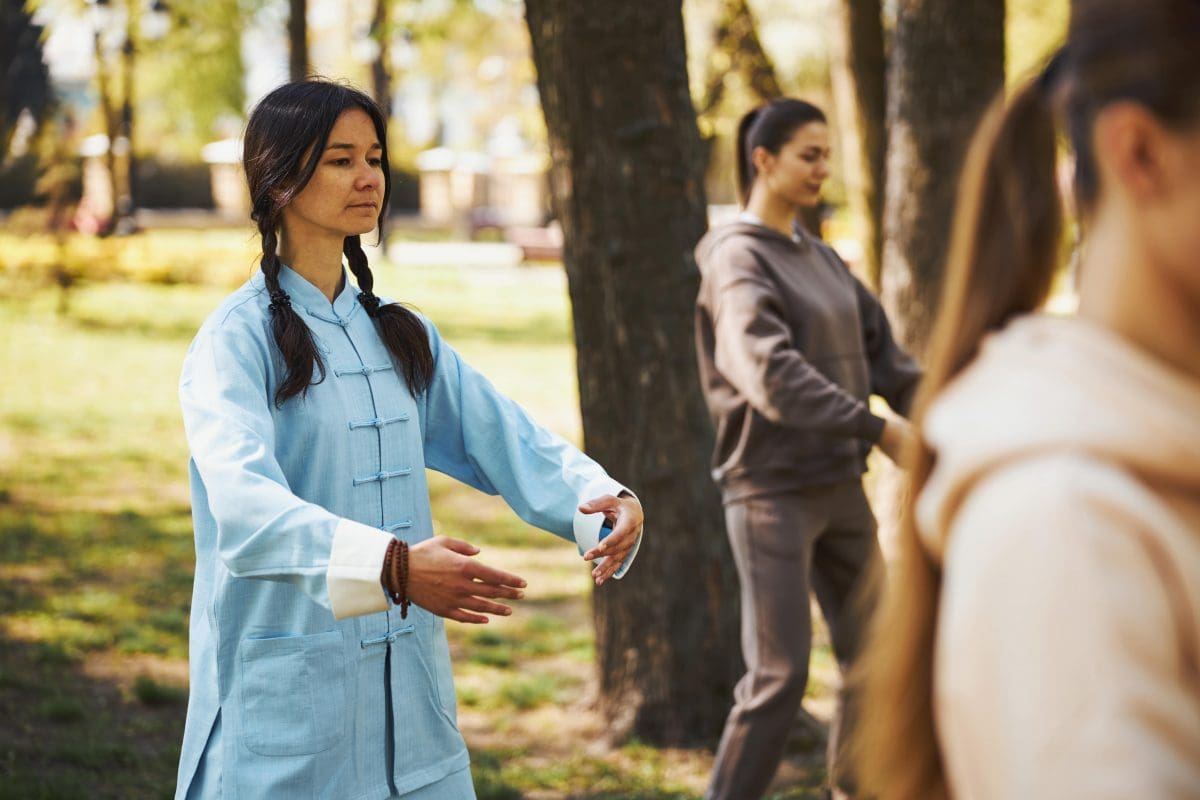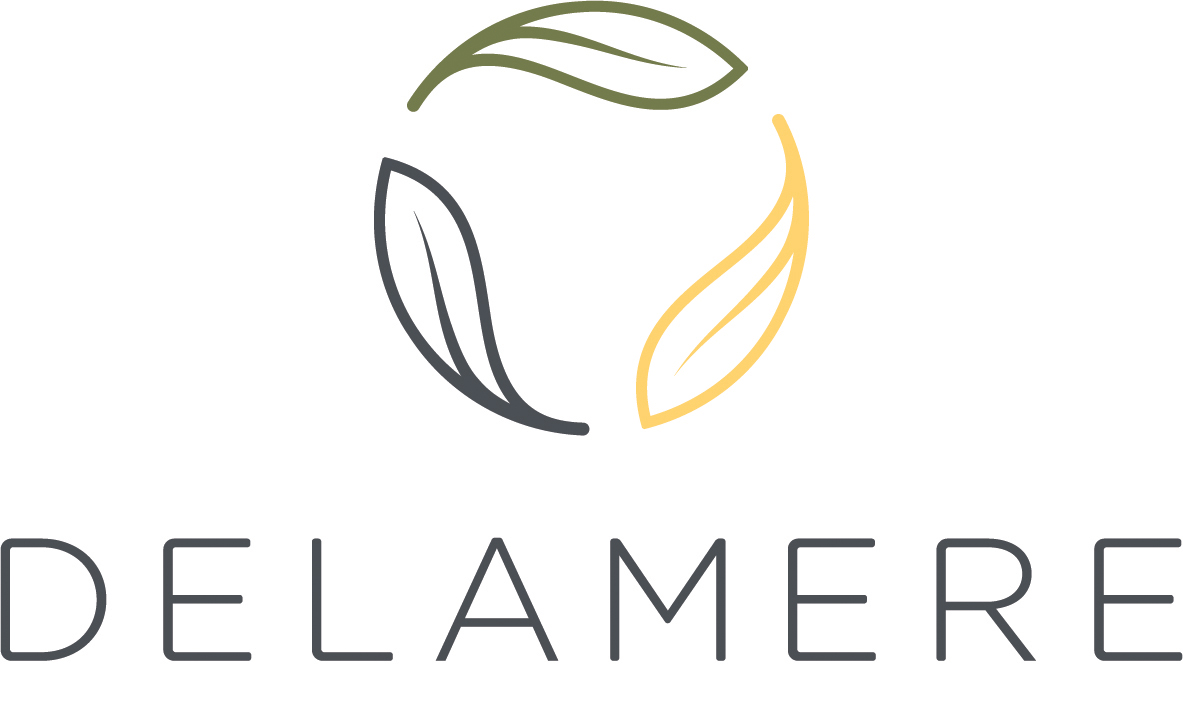What’s included?
- Introduction
- Why has Qigong been integrated into the Delamere Treatment Model?
- What can you expect from a Qigong session?
- Should you continue with Qigong after your stay at Delamere?
- What other holistic practices can you do at Delamere?
At Delamere, we aim to provide our guests with the most innovative and high-quality holistic treatments available to help them with their specific needs. In April, we introduced Qiqong meditation and exercises for the first time.
Qigong is a 5,000-year-old practice originating in China, encouraging us to look within ourselves and be present with the body during soft, slow movements.
Whilst yoga focuses on static stretches, Qigong places emphasis on movement and breathwork.
There are many different styles and methods of this exercise, but they all coordinate around the breath, movement, relaxation and feeling the energy travel around the body.
In active addiction, we find the hypothalamic-pituitary-adrenal (HPA) axis and the amygdala are dysregulated. The HPA axis is crucial to regulating stress responses and maintaining homeostasis in the body.
There’s ample evidence that Qigong practices re-regulate those areas of the brain and change how the body psychologically responds to stress.

Why has Qigong been integrated into the Delamere Treatment Model?
My own personal experience of over thirty years of practice has shown me how life-enhancing this meditation can be.
From developing a sense of peace and psychological relaxation, to increasing balance and physiological relaxation, it’s helped in many areas of my life.
In active addiction, an individual has created an automatic stress response in which their body craves the substance, alcohol or behavioural tendency that it knows will provide an escape. Qigong can help to develop a healthier and more relaxed response to unexpected stimuli.
Practicing Qigong can also improve energy levels throughout the day, and sharpens mental clarity and focus.
Qigong is still a bit of an unknown in the UK, and we are proud to have been the first private residential rehab clinic treating addiction to have introduced this to guests. Already underway, we have had some fantastic feedback. It truly has strengthened our treatment model.
What can you expect from a Qigong session?
Qigong is fundamentally peaceful. In your first sessions, you’ll learn how to breathe correctly.
Following this, a few very simple movements will be added to the breaths – Qigong is not about complex movements but simple ones that can blend in with the natural sensations of the body.
We’ve had such a positive response from guests about the integration of Qigong into the treatment model, as people experienced things they weren’t expected to, which is an exciting part of the process.
Should you continue with Qigong after your stay at Delamere?
Our aim is for guests to learn a complete method of Qigong so that they can continue when they return home.
The movements I do today are the same ones I’ve practiced over 30 years. Qigong is not about constant physical improvement or making it harder, but getting deeper into the patterns that bring you peace.
Practicing daily in the morning or before bed is a great way to add some rhythm to the day.
A piece of advice I would give those looking to extend their practice would be to do it for as long as you can concentrate and be present, to avoid it becoming an empty ritual. This might be five minutes, 15 minutes or 50 minutes.
What other holistic practices can you do at Delamere?
The Delamere Treatment Model combines traditional therapy methods such as CBT, group therapy and one-to-one talking counselling with more holistic practices.
Alongside the introduction of Qigong, at Delamere guests can take part in yoga, breathwork, reiki, and equine therapy.
Breathwork helps guests to regulate the nervous system, and is a subtle and on-the-go tool that can help to bring a person back to the present moment.

The off-site equine therapy can help guests to connect with themselves, using therapy horses to evoke feelings that may have been suppressed.
The combination of traditional therapies and holistic practices helps guests to understand to the best of their ability which coping mechanisms and tools will help them to grow beyond addiction.
Check out our Instagram page to watch a short video on the benefits of Qigong.

Call us confidentially at any time to speak to a member of our team.
Call us now: 0330 111 2015








